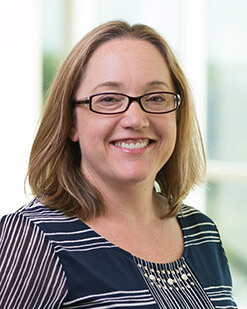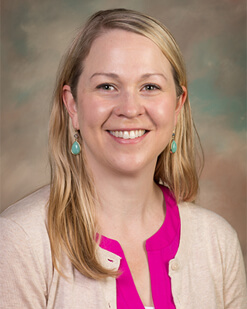Center for Post-COVID Care and Recovery
Long COVID Treatment
The Center for Post-COVID Care and Recovery at National Jewish Health in Denver, Colorado, is one of the only treatment programs in the country focused on helping patients continue their long COVID recovery. Our Center focuses on treating persistent respiratory symptoms after a COVID infection in adults, as well as the spectrum of long COVID symptoms in children.
Program Highlights
- A multidisciplinary approach to managing your care
- Advanced imaging, exercise, lung function, laboratory, sleep and other diagnostic testing
- Personalized treatment and follow-up plans
- Rehabilitative and neurocognitive services
- Research studies and clinical trials
Personalized Medicine and Care
COVID affects everyone differently. It’s important to have a multidisciplinary team that works with you to develop a comprehensive, personalized plan for managing your long COVID symptoms.
Doctors
-

Nir M. Goldstein, MD, FCCP
-

Vamsi P. Guntur, MD, MSc
-

Rebecca C. Keith, MD
-

Howard Saft, MD, MS
-

Jennifer Sederberg, NP
 Clinical Trials
Clinical Trials
For more than 100 years, National Jewish Health has been committed to finding new treatments and cures for diseases. Search our clinical trials.
Reasons to Choose National Jewish Health
- The leading respiratory hospital in the nation and the only one devoted fully to the treatment of respiratory and related illnesses
- Ranked #1 or #2 in Pulmonology by U.S. News & World Report for 26 consecutive years
- Ranked in the top 5% of hospitals in the nation by HCAHPS
- Physicians consistently recognized among the best in the nation by multiple services, including Best Doctors in America and Castle Connolly
- Among the top 6% of organizations funded for research by the NIH, providing patients access to hundreds of active clinical trials
- 124-year history of focus on care, research and education serving patients from around the world with lung, heart, immune and related disorders
Nationally Recognized Expertise
- Our hospital is recognized as a top respiratory hospital by U.S. News & World Report.
- Our physicians have helped write the clinical care guidelines for the diagnosis and care of COVID patients that are used by critical care doctors and pulmonologists throughout the nation.
- Our Center for Post COVID Care and Recovery is one of the only programs in the country solely focused on treating long COVID symptoms.
- Our physician-scientists and researchers discovered some of the first insights about COVID, including root causes of the disease and its phenotypes, as well as the damage it does to airways in both adults and children. We continue to study the impacts of COVID and long COVID today.
- Articles written by our physician-scientists and researchers are regularly published in peer-reviewed scientific journals, including many of the most influential publications such as Cell, New England Journal of Medicine, The Lancet, JAMA and Nature.
- Our physician-scientists are often invited to present at national and international conferences where physicians gather to learn about the latest advancements in medicine.
Benefit from the Latest Research
Our physician-scientists and researchers have been leaders in COVID research that improves patient lives since the beginning of the pandemic in 2019. This research includes:
- Development of diagnostic tests
- New treatments and therapies
- Studies to improve the quality of life for long COVID patients
Clinical Trials & Research Studies
National Jewish Health offers clinical trials and research studies for patients with long COVID. Our research coordinators can help determine which studies may be right for yo
Make an Appointment
You may be referred by your doctor or you can make an appointment without a referral. Pediatric food allergy clinic visits are available on our main campus in Denver and at our Highlands Ranch location. Not all services may be available at all locations. Please confirm when you request an appointment.

